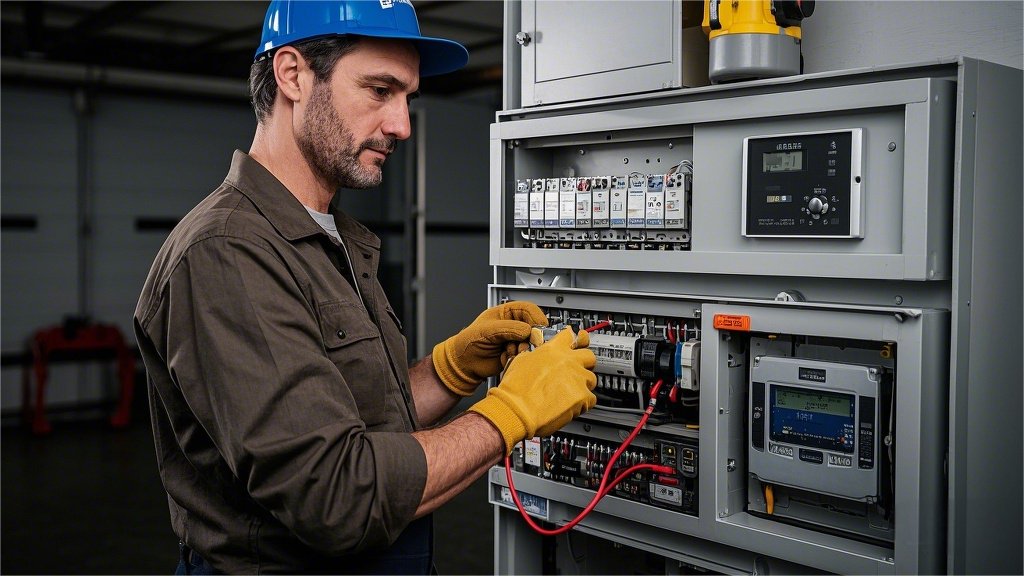Electrical Readiness for Home EV Charger Installation
As the electric vehicle (EV) revolution gains momentum, more homeowners are considering installing their own charging stations. A thorough electrical study before installing an EV charger is crucial to ensure safety, efficiency, and optimal charging performance. This comprehensive guide will walk you through the essential steps and considerations for a comprehensive electrical study before installing an EV charger.
1. Assess Your Electrical Panel Capacity
Understanding Your Home’s Electrical Infrastructure
Your electrical study before installing an EV charger begins with a comprehensive assessment of your home’s electrical system:
- Check your existing electrical panel’s amperage (typically 100, 150, or 200 amps)
- Determine available circuit capacity
- Calculate the current electrical load from existing appliances and systems
Why This Electrical Study Matters
A meticulous electrical study before installing an EV charger helps you:
- Prevent potential electrical overloads
- Identify necessary system upgrades
- Ensure safe and efficient charging
Key Considerations
- Most Level 2 EV chargers require a dedicated 240V circuit
- Recommended circuit breaker: 40-50 amps for standard home charging
- Ensure your panel has sufficient spare capacity for the new circuit

2. Professional Electrical Evaluation
Why Professional Assessment Matters
The most critical component of your electrical study before installing an EV charger is a professional evaluation:
- Identify potential electrical system limitations
- Ensure code compliance
- Prevent potential safety hazards
What to Expect from a Professional Evaluation
A comprehensive electrical study before installing an EV charger includes:
- Comprehensive panel inspection
- Load calculation analysis
- Recommended upgrades or modifications
- Precise circuit design for EV charging
Pro Tip: Your electrical study is not just a checklist but a strategic roadmap to safe and efficient EV charging.
3. Charger Type and Location Selection
Charger Types
- Level 1 Charger (120V): Slowest charging option
- Level 2 Charger (240V): Recommended for most home installations
- Level 3 Charger (DC Fast Charging): Typically for commercial use
Installation Location Factors
- Proximity to ethe electrical panel
- Protection from weather elements
- Convenient vehicle access
- Cable length and routing
- Potential future vehicle parking arrangements
Contact Tayniu no matter what type of charging solution you need!
4. Permitting and Electrical Codes
Navigation of Local Requirements
- Contact the local building department
- Understand specific electrical codes
- Obtain necessary permits
- Schedule required inspections
Common Code Considerations
- Circuit breaker specifications
- Grounding requirements
- Weatherproofing standards
- Minimum clearance distances
- Cable protection methods
5. Cost Estimation and Budgeting
Typical Cost Breakdown
- Electrical panel upgrades: $1,000 – $3,000
- Circuit installation: $500 – $1,500
- EV charger unit: $300 – $1,000
- Professional installation: $500 – $1,500
Potential Cost-Saving Strategies
- Check for local and federal tax incentives
- Compare multiple contractor quotes
- Consider energy-efficient charger models
- Explore utility company rebate programs
6. Electrical Safety Preparations
Essential Safety Checklist
- Install ground fault circuit interrupter (GFCI) protection
- Use proper gauge wiring
- Implement surge protection
- Ensure proper ventilation
- Create a clear, unobstructed charging area
Ongoing Maintenance Recommendations
- Annual electrical system inspection
- Regular charger and cable condition checks
- Keep the charging area clean and dry
- Monitor for any unusual electrical performance
7. Future-Proofing Your Electrical Setup
Scalability Considerations
- Plan for potential multiple EV ownership
- Consider higher amperage circuit installation
- Explore smart charging technologies
- Prepare for potential home battery storage integration
Conclusion
A comprehensive electrical study before installing an EV charger is the foundation of a safe, efficient, and reliable electric vehicle charging experience. By carefully following this comprehensive checklist and consulting with electrical professionals, you’ll be well-equipped to navigate the complexities of EV charger installation.
Final Recommendations
- Prioritize professional consultation
- Never attempt complex electrical work without qualified expertise
- Stay informed about evolving EV and electrical technologies
- Regularly review and update your home’s electrical infrastructure
Last Updated on December 18, 2024 by tayniu
